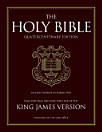Criminality and Narrative in Eighteenth-Century England: Beyond the Law
About this ebook
Beginning with the various genres of crime narrative, Gladfelder maps a complex network of discourses that collectively embodied the range of responses to the transgressive at the turn of the eighteenth century. In the book's second and third parts, he demonstrates how the discourses of criminality became enmeshed with emerging novelistic conceptions of character and narrative form. With special attention to Colonel Jack, Moll Flanders, and Roxana, Gladfelder argues that Defoe's narratives concentrate on the forces that shape identity, especially under conditions of outlawry, social dislocation, and urban poverty. He next considers Fielding's double career as author and magistrate, analyzing the interaction between his fiction and such texts as the aggressively polemical Enquiry into the Causes of the Late Increase in Robbers and his eyewitness accounts of the sensational Canning and Penlez cases. Finally, Gladfelder turns to Godwin's Caleb Williams, Wollstonecraft's Maria, and Inchbald's Nature and Art to reveal the degree to which criminal narrative, by the end of the eighteenth century, had become a necessary vehicle for articulating fundamental cultural anxieties and longings. Crime narratives, he argues, vividly embody the struggles of individuals to define their place in the suddenly unfamiliar world of modernity.
About the author
Hal Gladfelder is an assistant professor of English at the University of Rochester.




